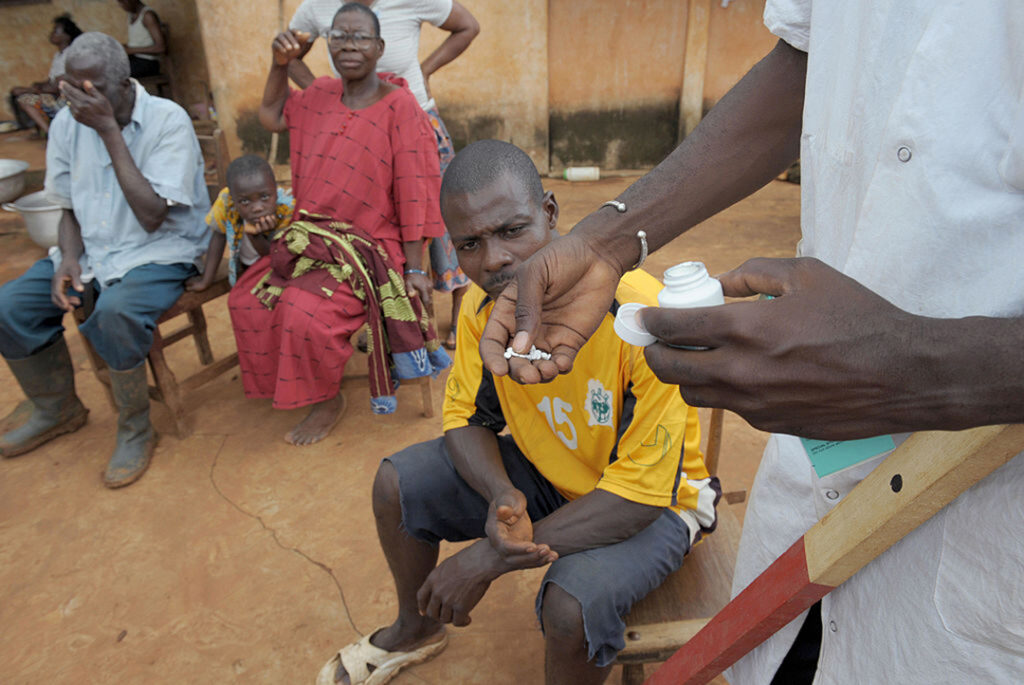ADF STAFF
The anti-parasitic drug ivermectin remains popular as a treatment for COVID-19, despite a lack of evidence supporting its use.
A new analysis by an international team of researchers suggests the faith in ivermectin has been driven by flawed studies that formed the basis of other research into ivermectin.
“The main issue is that a very large number of these studies are simply fake,” Dr. Kyle Sheldrick, a researcher in Australia, told BBC World News. “They either did not happen at all, did not happen as their authors described them or reported false results.”
Sheldrick and four other Australian and British researchers have gained a reputation as “data detectives” by examining how other researchers conduct their work on a variety of subjects.
Ivermectin, which is used to treat roundworm and river blindness in Africa, has become the focus of misinformation regarding its effectiveness against COVID-19, despite widespread scientific agreement that it is ineffective.
“Most people with scientific expertise saw the initial ivermectin trials, dismissed them as incredibly low-quality, and left it there,” Gideon Meyerowitz-Katz, an epidemiologist from the University of Wollongong and a member of the data detective group, told ADF. “It took some serious promotion for ivermectin to become the wonder drug based on what now appear to be fraudulent studies.”
The World Health Organization urges people to avoid taking ivermectin for COVID-19 unless involved in clinical trials. The ANTICOV project, which is testing a variety of readily available drugs against COVID-19, still has ivermectin under study in combination with the antimalarial drug ASAQ.
One maker of ivermectin, the U.S. pharmaceutical company Merck, has declared that there is no scientific evidence the drug protects against COVID-19.
Yet, people insist on using it. In South Africa, for example, ivermectin has provoked confrontations between patients demanding it and doctors refusing to prescribe it. In South Africa, ivermectin is licensed only for use in livestock. Some people have treated themselves with ivermectin from the black market — and ended up in the intensive-care unit as a result.
Sheldrick and his colleagues have traced some of the misinformation to a study conducted in Egypt last year, a study they say included plagiarized information, duplicated or questionable data, and unrealistic outcomes.
The research team reached its conclusion through meta-analysis, essentially compiling the results of multiple studies into a single review.
The ivermectin study conducted by Dr. Ahmed Elgazzar at Egypt’s University of Benha drew a red flag. The study gained international attention because it reported a 90% decrease in mortality from COVID-19 among its 600 test subjects, 400 of whom had active cases of the disease.
Elgazzar ran his study from June to September 2020. It was placed online in November using the preprint system, which publishes preliminary results of scientific studies before they undergo peer review, which is the crucial final step of verifying scientific research before publishing it.
The preprint system was developed during the 2014 to 2016 West African Ebola outbreak to speed up research into the disease.
Because Elgazzar’s report was among the first and largest studies of its kind, it became the foundation for many other ivermectin studies.
Delving into the data underlying the Elgazzar study, Sheldrick’s colleague Jack Lawrence discovered plagiarized content. He also found that some patients used in the study had died before the study began, meaning they had not given consent to participate. In other cases, patient data was duplicated exactly in blocks of 18, apparently as a way to make enrollment in the study appear higher.
The Elgazzar study also lacked a control group — patients who did not receive ivermectin treatment — which would be standard for such research.
Ultimately, Elgazzar’s study was dropped from consideration by the website Research Square. Elgazzar has said he was not given a chance to defend his work before Research Square acted. He disputes the claims by Sheldrick, Lawrence and their colleagues.
By the time Elgazzar’s paper was pulled, it had been online for seven months, downloaded 100,000 times and cited in at least 30 other studies and analyses of ivermectin and COVID-19.
As a result, the research into ivermectin and COVID-19 was dramatically skewed, according to Sheldrick’s group.
In a letter to the journal Nature, the group wrote: “Several other studies that claim a clinical benefit for ivermectin are similarly fraught, and contain impossible numbers in their results, unexplainable mismatches between trial registry updates and published patient demographics, purported timelines that are not consistent with the veracity of the data collection, and substantial methodological weaknesses.”
Elgazzar’s study is not the only pro-ivermectin report provoking strong criticism. Studies in Argentina, Iran and the United States also have been hammered for similar problems with sample size, questionable methods and falsified data.
British statistician Andrew Hill, who worked with the data detectives on their ivermectin analysis, told Cosmos magazine that digging into the raw data behind pro-ivermectin studies has brought serious concerns to light.
“It seems the whole ivermectin story is a house of cards,” Hill told Cosmos.


1 Comment
Ivermectin resulted in me ending up on a ventilator for 21 days. 71 days hospitalized. Don’t fool yourself as I did.